New 'redlining'? Des Moines neighbors fear sobering center could hinder stability, investment
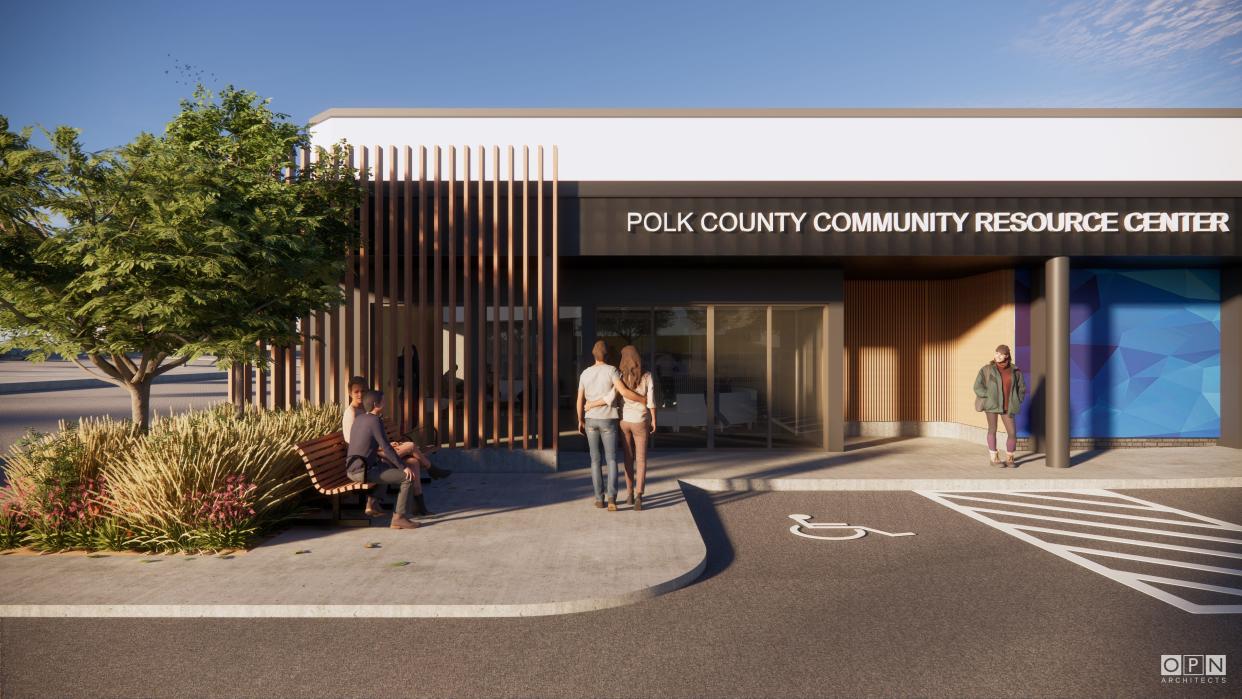
A long-awaited resource center for people seeking treatment for alcoholism and mental health services is slated to open on Des Moines' north side before the end of the year. But surrounding neighbors, who say they were left in the dark on its location, question what the center could mean for the neighborhood's future vitality and public safety.
Polk County is in the thick of transforming a vacant building at 1914 Carpenter Ave. that will soon serve as a sobering center, a walk-in mental health clinic and a crisis observation center.
Named the Polk County Life Service Center, the 15,000-square-foot, county-owned space is described by county leaders as a one-stop-shop resource center that will be run in partnership with Broadlawns Medical Center, the city of Des Moines and the nonprofit St. Vincent de Paul of Des Moines. Also called an access center, it's meant to divert an intoxicated person or someone experiencing mental health issues from jail or an emergency room and direct them to the help they need. A connected building will be a welcoming and resource center for immigrants and refugees.
More: A new sobering center is opening up in Des Moines. Here's what you need to know
In a plan that has been in the works for years, county officials say the space, nestled in the King Irving neighborhood northwest of the city's downtown core, serves as an ideal location because of its proximity to a bus line, the freeway and additional county health services.
But the project hasn't been without ongoing pushback from some neighbors who say county officials got everything right about the sobering center — except for its location. Neighbors have signaled concerns over the lack of transparency about the center's location and operations. And with the neighborhood's past of divestment and redlining, some worry additional social services will thwart its chances of finding stability.
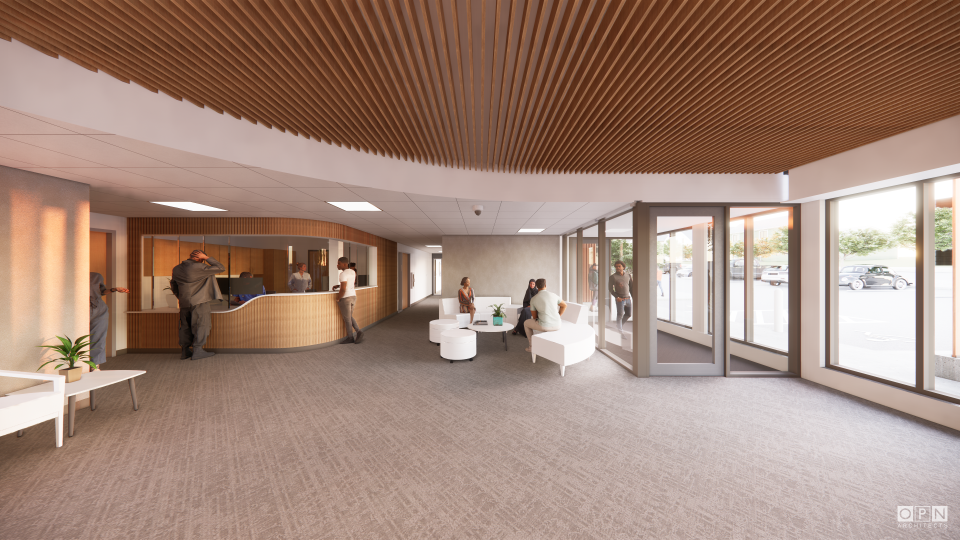
Polk County Supervisor Angela Connolly told the Des Moines Register it's not typical for the county to hold meetings with individual neighborhood associations for projects, but acknowledges there could've been more communication with nearby residents in this case.
"We should've been more on top of it. And I told them, you know, I was sorry for that but ... it's not like we went out and bought a piece of property. It is our property, and that's what we chose to do with our property," Connolly said.
Still, Connolly contends the estimated $2.5 million center will improve the appearance of the neighborhood and hopes in time "it's going to be something they can be proud of in their neighborhood."
Residents worry about sobering center affecting neighborhood health, public safety
King Irving Neighborhood Association President Margaret Wright has been one of the dominant voices opposed to the sobering center's location. Neighbors were not told about the resource center ahead of time, and the county still hasn't provided information on how it will be run, Wright told the Register.
Wright said community members learned about the center from city officials in a neighborhood association meeting last spring. Outraged nearby residents subsequently banded together to unload their frustrations on county officials in scheduled meetings, including one on April 19, 2023, with more than 60 people in attendance.
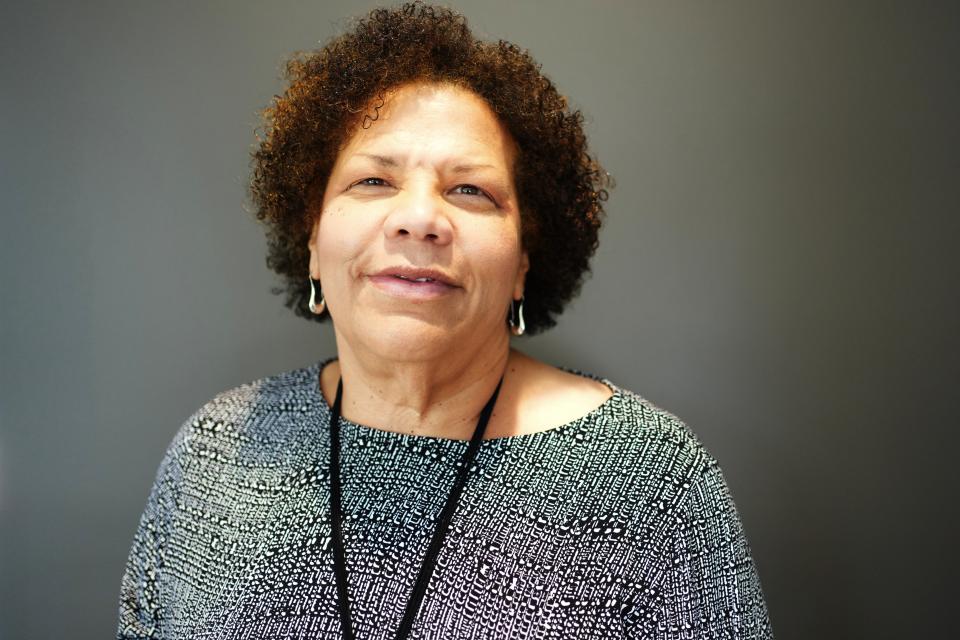
A Near Northside Neighbors advisory committee representing dozens of homeowners in neighborhoods including King Irving, Mondamin Presidential, River Bend and Good Park, spelled out their concerns in a May 2, 2023, memo addressed to Polk County supervisors and deputy county administrator Sarah Boese, calling the center's location a detriment to area residents.
Among their criticisms, residents claim the county failed to consider other sites; did not do a neighborhood impact study on the center's location; and didn't ask for residents' input on the site and its operations.
King Irving resident and neighborhood association secretary Joann Muldoon also questions how the sobering center might affect public safety in the area, given its placement near two vulnerable populations — a senior center and King Elementary School.
Wright and Muldoon say they worry specifically about discharged patients left to wander the neighborhood.
"So at any time, people can grab all their belongings and leave," Muldoon said. "And this is going to be a place for people who are actively using drugs, who are drunk, and who are in mental health crisis."

Connolly said she has tried to reassure neighbors over safety concerns. The building will have plenty of lighting, 24/7 security, staff to discourage loitering and transportation services to keep people from sticking around the neighborhood after they check out.
"It's not just, 'You're sober, open the door, out you go,'" Boese said. "It's, 'Where do you need to go? Can we get you a bus token? Can we get you an Uber?' You know, so there's not that loitering and hanging around the neighborhood that people are worried about."
A 'second redlining': Residents argue near north side is inundated with social services, programs
Wright says the placement of the sobering center underscores a larger problem: using a low-income neighborhood, still recovering from past discriminatory lending practices called redlining, as a repository for social services.
More: Redlining: How racist policy from a 1930s program has left scars still visible in today's Des Moines
Redlining came as part of a 1933 New Deal program designed to refinance home loans and get Americans back into homeownership after the Great Depression. It created the 30-year, federally backed mortgage, which is still the standard today. But it also gave way to redlining by prioritizing loans in neighborhoods where the majority of white residents lived and prohibiting them in areas where Black people and other minorities lived.
Although redlining was outlawed in 1968, its impact lingers today in neighborhoods with greater concentrations of low-income residents and people of color, lower property values and less business investment.
In Des Moines, 34% of neighborhoods, including downtown, in the East Village and on the south, east and north sides, were redlined, according to a government map digitized by the University of Richmond's "Mapping Inequality" project.
Wright acknowledges the neighborhood has come a long way over the past several decades, with significant investments like Evelyn K. Davis Park and the Reichardt Community Recreation Center, which will replace the John R. Grubb Community YMCA. She said the city's also done a good job of rehabilitating or tearing down abandoned and neglected properties to reduce blight.
But with the area's history — and intentional disinvestment and neglect — Wright argues the sobering center "seems like a second redlining to dump all the city services in our area."
As it is, the area already hosts services such as Hope Ministry's Bethel Mission men's shelter on Sixth Avenue and the Broadlawns expansion on Hickman Road, she says.
"So that's what we're saying is, you know, that we have a lot of programs and services that are here, and that's OK," Wright said. "But then let us get healthy before you start trying to bring in other services that are going to bring in a population that's going to take us back again."
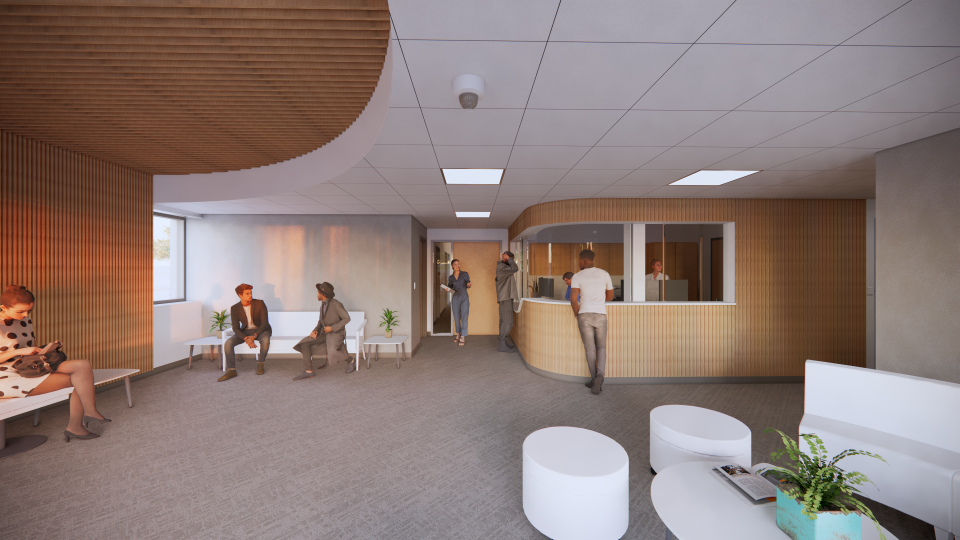
Donna Beary, a King Irving resident, agreed that the near north side has become seen as a good place to dump services.
"I can't tolerate people who say, 'Not in my backyard' because we all have problems in our backyard," Beary said. "But we shouldn't have all the problems in our backyard."
Additionally, Wright worries about the system serving people in a "truly equitable" way. She said she hopes the county keeps track of race and gender data of the people who are diverted to the sobering center, for which there is no risk of a criminal record, versus taken to jail.
Boese said most users of Broadlawns' Crisis Observation Center already come from the 50314 zip code, which includes King Irving, "so having it at this location will make it even easier to access." The observation center will move from its current address at 1801 Hickman Road.
Boese said the county plans to include tree plantings, as well as a mural on the property to make it a welcoming environment and inspire development nearby. She and Connolly also confirmed the county is eyeing other vacant and "blighted" structures in the neighborhood to improve the area.
In August 2023, members of the King Irving neighborhood filed a civil rights complaint to the Environmental Protection Agency's Office of External Civil Rights Compliance. A complaint may be filed to the EPA for "anyone who believes that an entity that receives financial assistance from EPA has discriminated against someone on the basis of race, color, national origin (including limited English proficiency), sex, disability or age; or has engaged in intimidation or retaliation prohibited by EPA's nondiscrimination regulation ..."
The filing accuses Polk County of violating laws including Title VI of the Civil Rights Act of 1964, which prohibits recipients of federal financial assistance from discriminating based on race, color or national origin. EPA officials confirmed to the Register that the Polk County case is "under jurisdictional review" but provided no further comment, citing an open investigation.
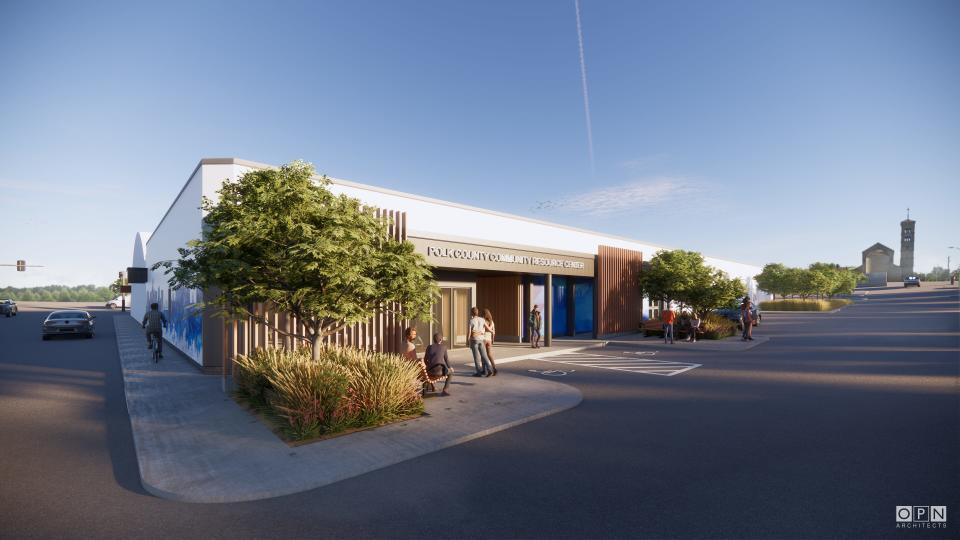
What will be at the Polk County Life Service Center?
Polk County supervisors were inspired to bring a sobering center here after visiting one in San Antonio years ago and became more motivated after seeing one open in Iowa City in 2021.
After searching for the right spot, they landed on their own building, which once operated as a grocery store and later a disco club. It sits across the street from the Polk County Health Department.
"We've been planning this for a long time, and I always said this is the last piece for us to help the community," Connolly previously said about the center. "These folks that are suffering from alcoholism or substance abuse really have nowhere to go. They're out on the street."
The cost was initially estimated at $5 million, but Boese said the county has cut the price by about half by doing almost all of the renovations in-house. The life service center, which will be managed by St. Vincent de Paul and largely staffed by Broadlawns, will have three main components:
A sobering center, staffed by trained paramedics and EMTs, where people who are under the influence of alcohol and drugs can get short-term rest and recovery. This unit will have five chairs but can double capacity, according to Polk County Behavioral Health & Disability Services CEO Annie Uetz. The average stay for patients will be 4 to 6 hours.
The crisis observation center will provide care for people experiencing mental health crises, according to Boese. It's meant to serve patients who are not experiencing an emergency but whose needs are urgent enough to see a mental health professional. This unit will have eight chairs.
Broadlawns' Behavioral Health Urgent Care clinic will be for people who need quick access to a therapist and medical professionals who can prescribe medications. This unit will have eight rooms for patients.
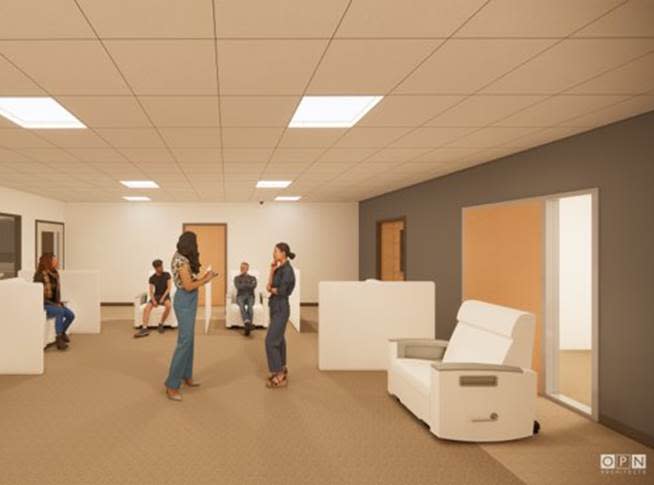
Patients can be dropped off by law enforcement, family members or friends, or can check in themselves, Boese said.
The center likely will open in October, she said.
How about the immigrant, refugee welcome center?
Boese said Global Neighbors will be a centralized hub for immigrants and refugees to access basic resources they need to adjust to their new city.
"People are coming here and we want them to be part of our community. We want them to, you know, contribute, feel welcome ... yet we're asking them to spend their time and money running all over town to get food, to get language classes, to get job training, to get housing," she said. "So it's just not a good use of their time."
Boese said it's also meant to be a celebratory space for ethnic organizations to have gatherings and parties.
The work on Global Neighbors likely won't start until June. Services could start closer to the end of the year.
Virginia Barreda is the Des Moines city government reporter for the Register. She can be reached at vbarreda@dmreg.com. Follow her on Twitter at @vbarreda2.
This article originally appeared on Des Moines Register: Des Moines neighbors fear sobering center could hurt northside stability

